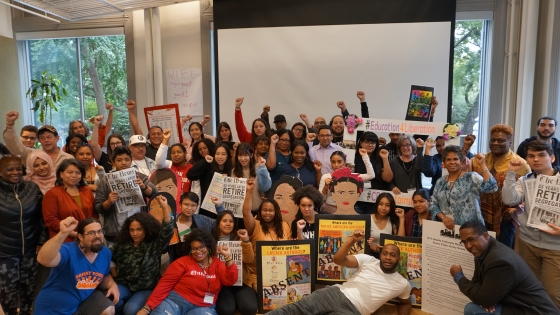By Lyrica Fils-Aime, LCSW & Leah J. Plasse, LCSW
Editors: Andolyn Brown, Parker Foster, & Jodi Friedman
Learn more about this research from EJ-ROC:
Download Full InventoryPurpose + Grounding
The task of resisting our own oppression does not relieve us of the responsibility of acknowledging our complicity in the oppression of others. — Beverly Tatum
This inventory is designed for personal introspection and teamwork reflection. With an awareness of oppressive modalities and systems, it asks us to examine the identities we serve, those we don’t and what we need to do to serve clients effectively and holistically.
Many practitioners are taught to focus on the individual and presenting issues. Yet when we fail to recognize the ways systematic inequality and discrimination impact our clients, we replicate these systems on an individual level and fail our clients. To be culturally responsive clinicians, we must examine the broader context our clients live in and be conscious of them. This inventory invites us to bring in a systems perspective to confront and name the way biases can recreate structural inequalities and impact the individual and our work together.
First, we work to understand ourselves. This journey allows us to support others to understand their own identities and the socio-political context surrounding them. To do this, we have to turn inward, investigate ourselves and continuously learn about which identities we we are not paying attention to, and when and where our identities are privileged or marginalized.
We look at sexuality, race, gender, disability, body size, ethnicity, culture, education, finances, community, work, trauma, ancestral experiences all in the attempt to provide identity-centered therapy. Then, we discuss with others. It is a cyclical ongoing process. Some of our identities can change and shift just as the socio-political environment we live in shifts. Keep talking and learning!
How Can Clinicians Be Culturally Responsive?
Most of us have had an ethno-studies, culturally competent or diversity class in our clinical coursework. Unfortunately, one or two classes and a few internships, and even years of work experience do not do enough to prepare us for anti-oppressive and anti-racist work with clients. Therapists, social workers and mental health clinicians work in systemically racist institutions and within a historically problematic system of mental health. We have to actively work towards dismantling our socialization and biases, make changes in systems and processes, and constantly interrogate our decisions over others’ lives. We are gatekeepers to services for wellbeing, healing, and the ability to thrive. To be culturally responsive clinicians, we have to constantly reflect on our own identities, the identities of those we serve, and the socio-political context in which we all live.
How to Use this Inventory
Individuals can use this inventory slowly and carefully, taking time to reflect on each section. We recommend that you meet with others in group supervision, accountability hubs, or affinity groups to discuss and learn from the reflections of others.
Groups can take one section at a time to process and interrogate their practice and socio- political contexts in accordance with clients.
We offer this inventory not to encourage anyone to believe that they have arrived at being culturally responsive, but to enter the ongoing process of approaching a culturally responsive practice. To be a culturally responsive clinician is to constantly be aware of and reflect on your identity markers and how we you are working with clients through an equity lens. Culturally responsive clinicians are reflective and cognizant of power structures, oppression, and systemic racism. We must continue to learn and unlearn.

